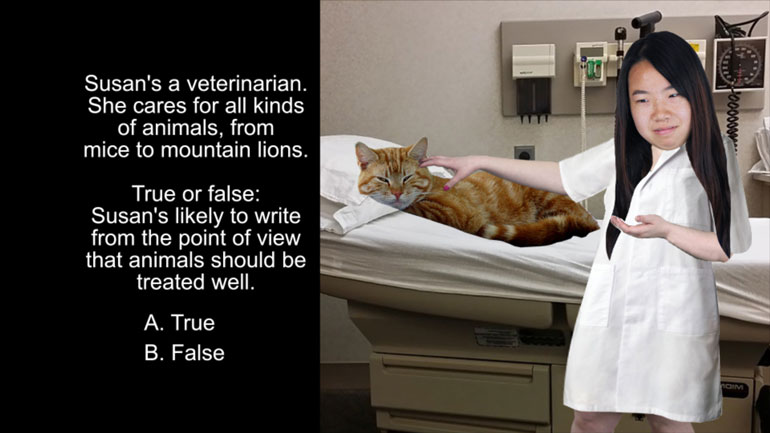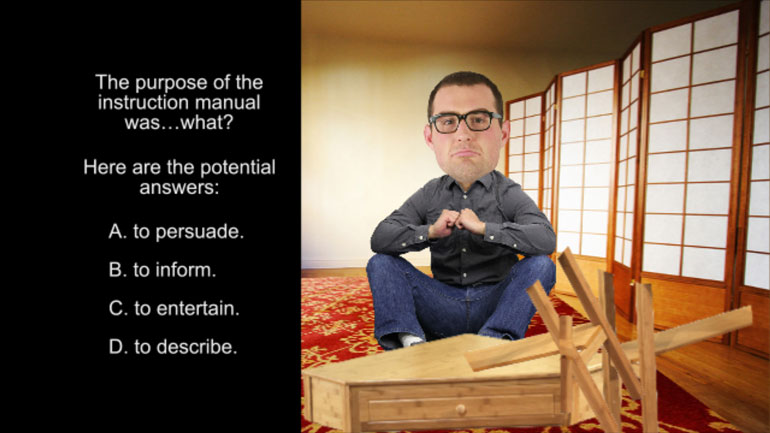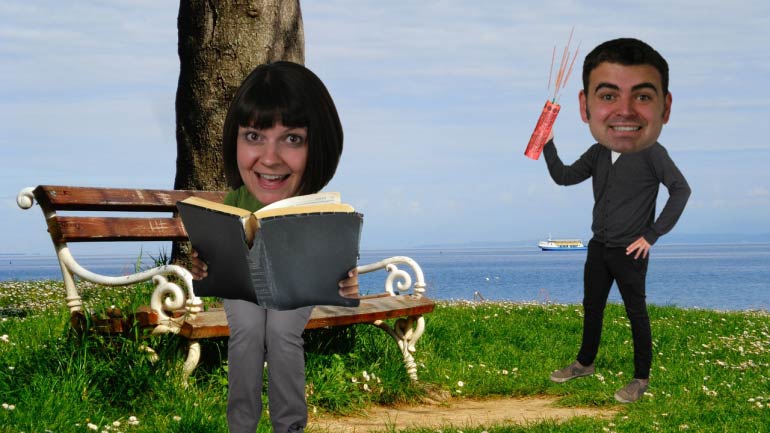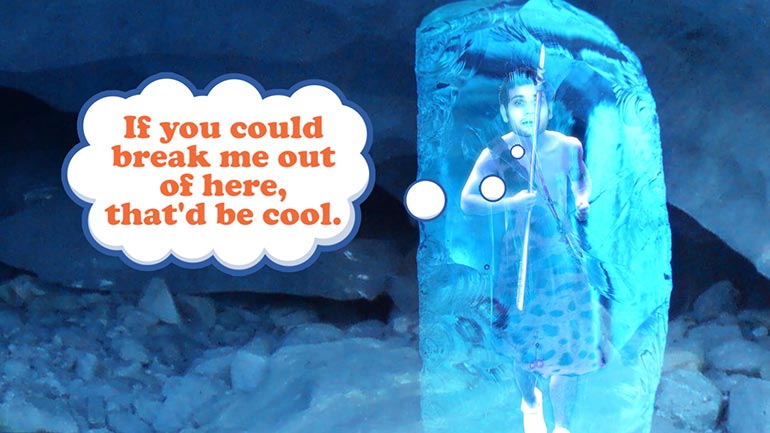ShmoopTube
Where Monty Python meets your 10th grade teacher.
Search Thousands of Shmoop Videos
ELA 3: The -Ed Talks 4 Views
Share It!
Description:
Today we're going to have a tense conversation. But don't worry, it'll be fun. Check out the video to see why.
Transcript
- 00:05
[Dino and Coop singing]
- 00:13
Today's video is all about...
- 00:15
Ed?
- 00:16
Hmm. [Guy called Bob looking confused]
- 00:16
Like....
Full Transcript
- 00:17
Ed...gar Allen Poe? [Picture of Edgar Allen Poe]
- 00:19
How about....
- 00:20
Ed.... ward the II?
- 00:22
Oh look, we're gonna need a bit more than “Ed” to go off of here...
- 00:25
Today we'll be talking about “e-d,”
- 00:28
As well as “i-n-g.”
- 00:30
Too bad.
- 00:31
Edward the II had a pretty cool beard. [Painting of Edward the II]
- 00:33
We could've done an entire video about it.
- 00:35
Okay!
- 00:35
So by adding “e-d” or “i-n-g” to words, we can indicate the tense of a word. [Coop pointing at a blackboard]
- 00:40
If someone “jumped” for instance, that would suggest we're in the past tense – they [Guy sleeping on a couch]
- 00:44
previously jumped.
- 00:46
If they are “jumping” however, then we can assume we're in the present tense and [Kids jumping in a park]
- 00:50
they're jumping at this very moment.
- 00:52
Now when it comes to reading and saying these words out loud, the “ing” ones are pretty [Coop eating sweetcorn]
- 00:56
darn easy.
- 00:57
All you really do is take whatever word you're saying...
- 01:00
Whether it's “want” or “cook” or “place” and then add the sound “i-n-g” after it.
- 01:04
Wanting, cooking, placing.
- 01:06
But when it comes to adding “e-d” to those words, well, pronouncing it can be a bit trickier. [Magician appears with birds coming from his hands]
- 01:11
Sometimes the “e-d” sounds like “id,” while other times it might sound like “tuh”
- 01:16
or “duh.”
- 01:17
And if we're unfamiliar with a word, it might be difficult to know how to pronounce it's [Guy sat at a computer]
- 01:20
“ed” form.
- 01:22
But don't worry – there's a trick. [Magician makes a rabbit appear from his hat]
- 01:23
Think of the name “Ted.”
- 01:25
Specifically, the letters T and D.
- 01:27
Now if the syllable before the “ed” in your word ends with a T or a D, then you're [Dino pointing at a blackboard]
- 01:32
going to likely pronounce it “id.”
- 01:34
For example, in the words we used earlier, “want” ends with a T, so we know that
- 01:38
“wanted” is pronounced with an “-id” sound.
- 01:41
Want-id.
- 01:42
But since our other words, cook and place, don't end with a D or a T, we don't pronounce
- 01:47
them with that “id” sound.
- 01:48
Cooked and placed.
- 01:50
Those are pronounced with the “tuh” and “duh” sounds.
- 01:52
They sort of just roll off the tongue quickly as opposed to forming their own “id” sound [Words falling from a boy's tongue]
- 01:56
like in “want-id” And that's it!
- 01:59
…Hm.
- 02:00
Maybe we have time to talk about Edward's sweet beard after all… [Girls screaming about Edward II]
- 02:03
Just look at that thing…majestic.
Up Next
ELA Drills, Beginner: Point of View. Is the statement in the video true or false?
Related Videos
ELA Drills, Beginner: Textual Analysis 1. The purpose of the instruction manual was...what?
ELA Drills, Beginner: Point of View 3. Which sentence in the passage best shows the narrator's point of view on the topic of Chelsea Simpson?
We wanted to make a video about sedentary rocks, but we couldn't get lazy uncle Rocky off the couch. Oh well. We'll teach you about sedimentary roc...
Today we're bringing you the opposite of Jurassic Park—how living things become fossils. Okay okay, it might not be quite as fun...but hey, at le...




